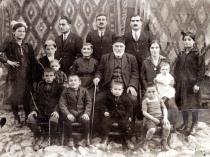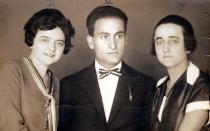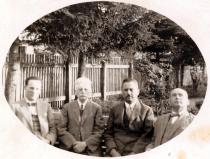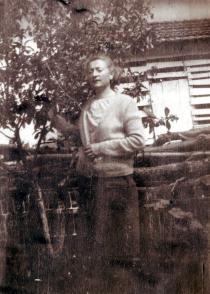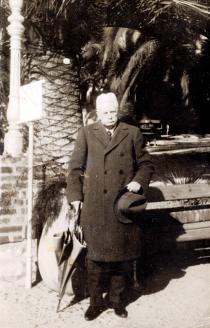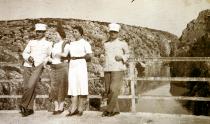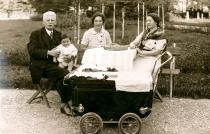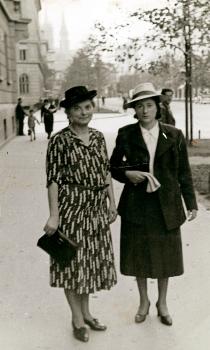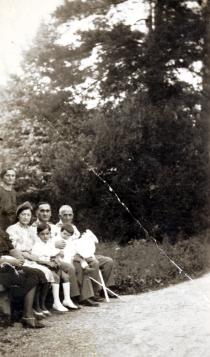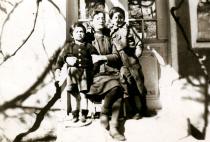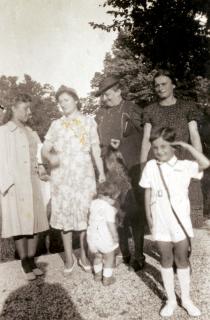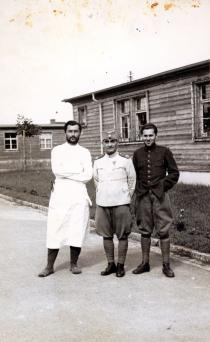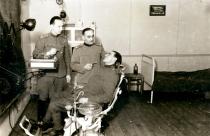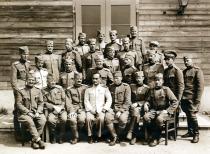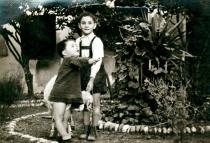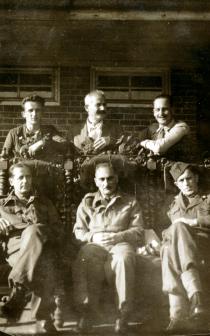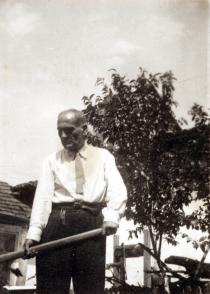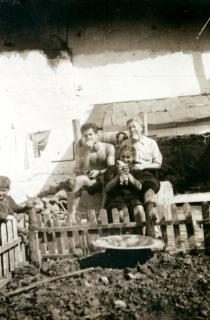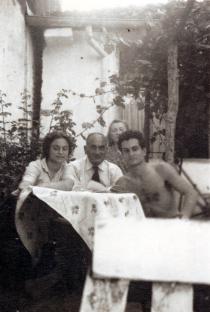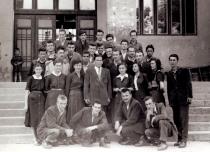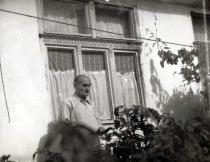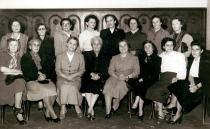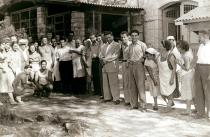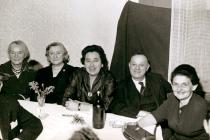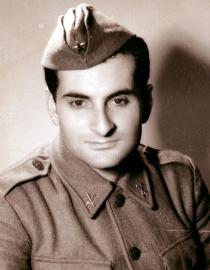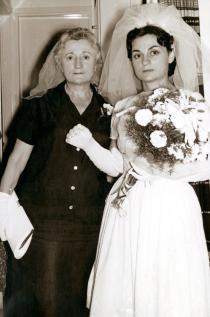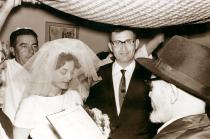This is a photo of my grandfather, Jozef Izrael, in Herceg Novi. It was taken during winter sometime during the 1930s.
During WWI my grandfather was a supplier for the Austro-Hungarian army. I do not know what he supplied, but I imagine it was food products. After the war he began collecting shares in companies and then lived off the dividends.
He had shares in a factory that produced matches, soda water and in the Kljuc factory, which was an apparel company. He was a very smart and capable man, and that was probably why he was given the nickname Bismark. His friends and family must have believed that he exhibited the wisdom and intelligence of the renowned statesman.
Despite his knowledge, he suffered from bad health and the Sarajevo climate only exacerbated it. To avoid health problems, he spent winters in a hotel in Herceg Novi, on the Adriatic coast.
He died in 1935 in Mostar at my mother's sister Erna's house. His body was transported back to Sarajevo where he was buried. He was lucky to have died "in bed" and not in a crematorium, as was the fate of many of my family members and so many other Jews here.
When he and my grandmother, Rahela Izrael (maiden name - Salom), married, she brought a large dowry to the marriage; back then, women were expected to bring capital into the marriage, and in those days, marriage was more of an obligation and social merger than a question of love.
People married partners who would improve their social standing, and the matchmaker was the one who made those arrangements. The Jews had their matchmakers, who were usually quite talkative and skilled women, whose job it was to seek out the right person.
There were Serbian, Turkish, and Muslim matchmakers, and each one matched pairs from within their religious group-intermarriage was unheard of at the time, and certainly not the job of the matchmaker.
A family got the word out that they were looking to marry off a child, the other families did the same, and the matchmaker connected the two. It was important that they both be from similar financial backgrounds and that Jews married Jews.
The last step of the process was for the two young people to meet each other. It was almost a blind process for them. The matchmaker was of course compensated with a "gift." The goal was always a good and reasonable match.

